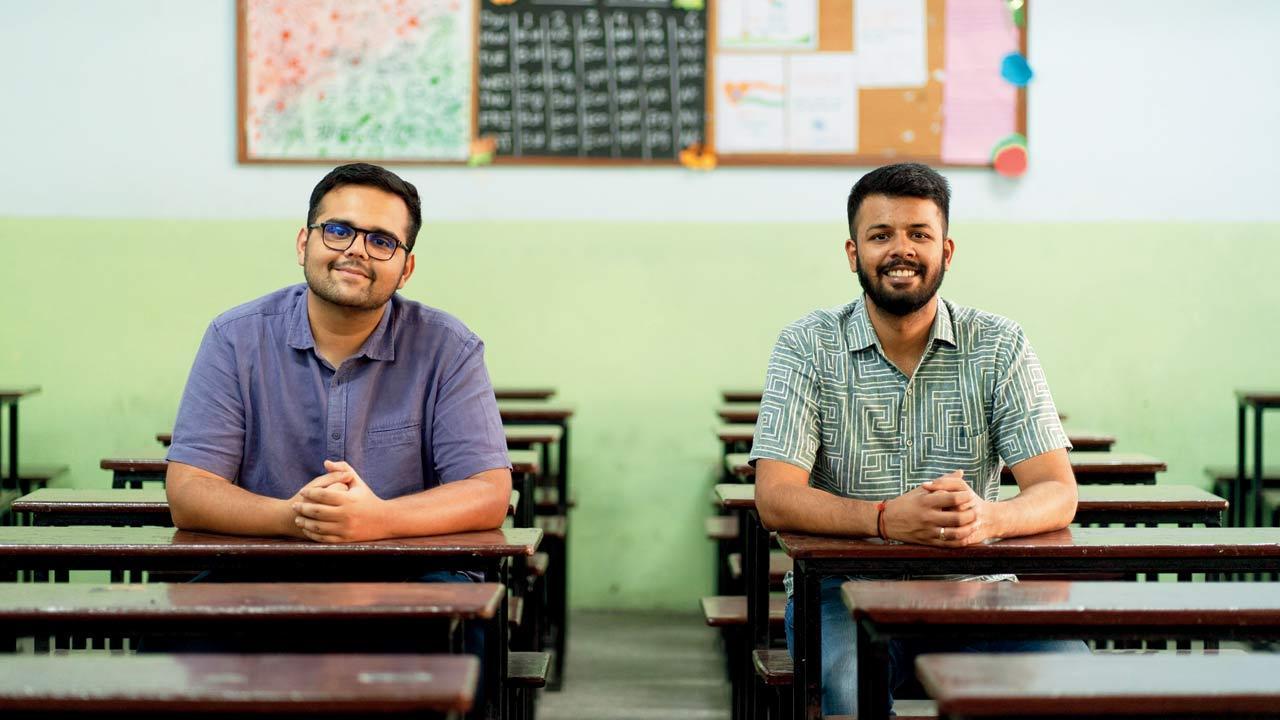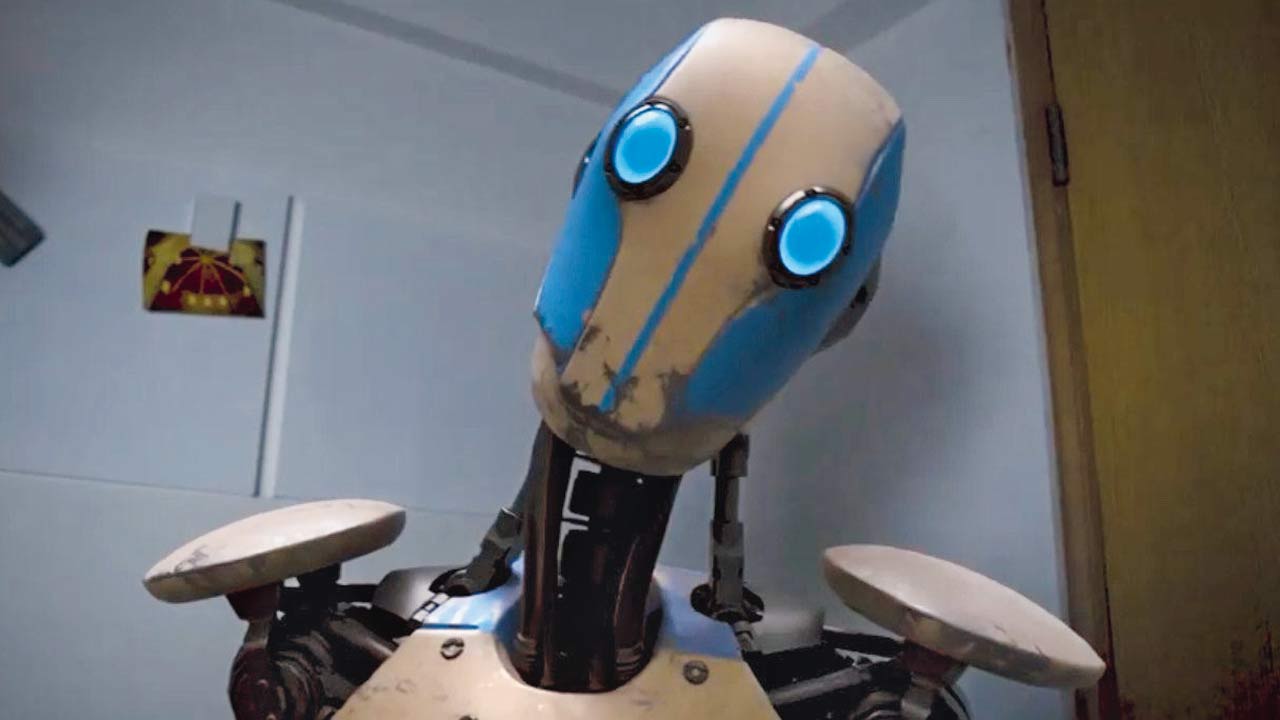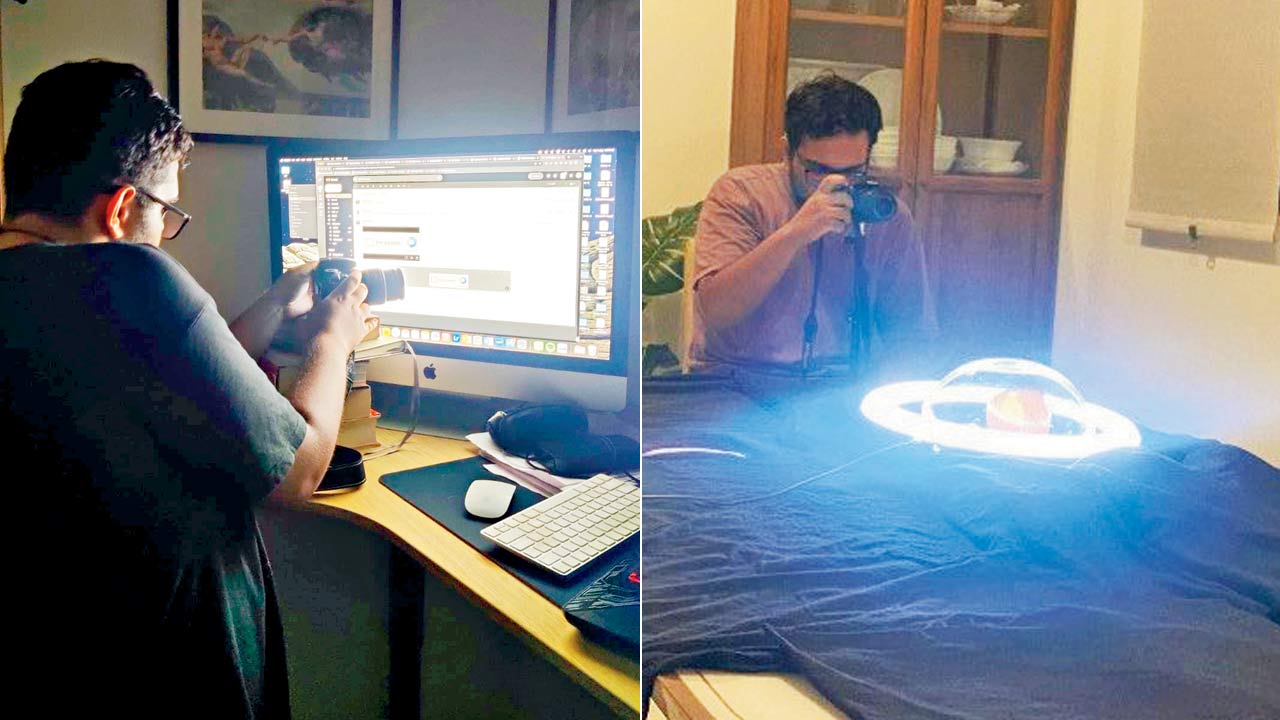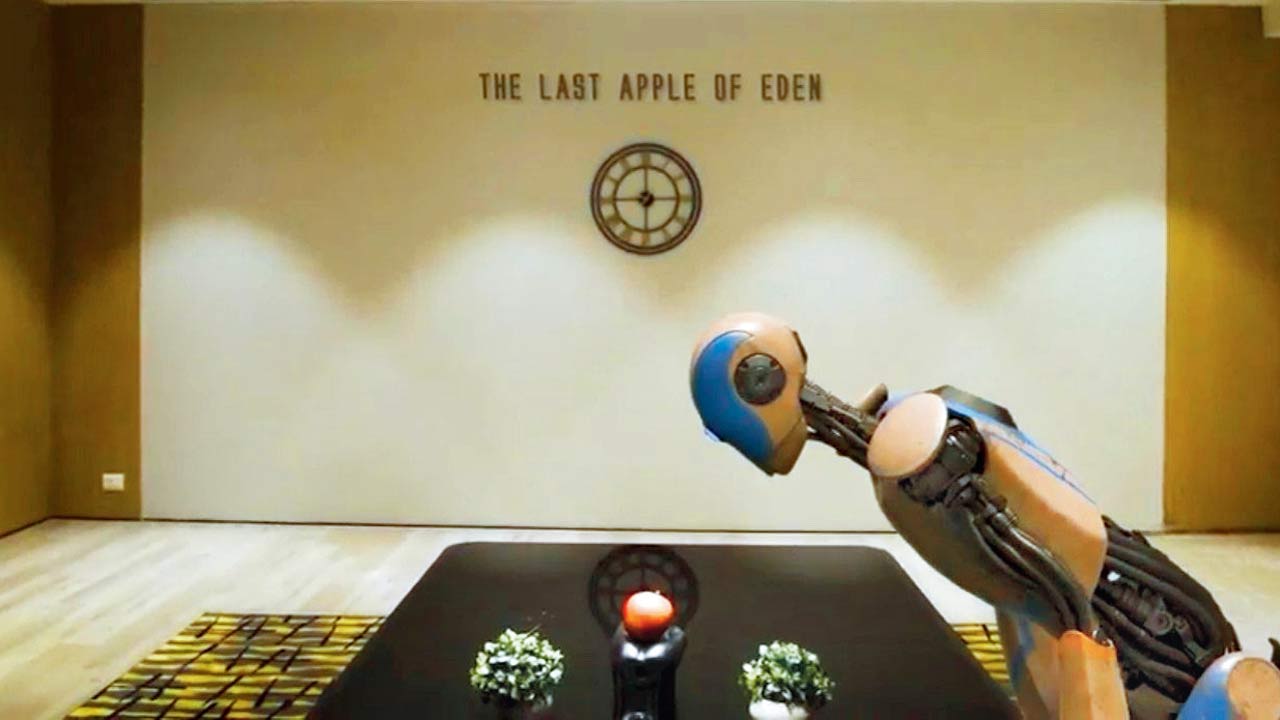Actor Naman Pincha and director Syed Shadan, who shot their short film Overdrive employing the software Wonder Dynamics, break down how Pincha played second fiddle to a robot during the shoot of their 10,000-rupee movie

Syed Shadan and Naman Pincha
When it comes to big-ticket Bollywood films, we often hear that it has been delayed because its VFX is taking longer than expected. That special effects is a time-consuming process has been ingrained in everyone’s heads. So, imagine actor-writer Naman Pincha and writer-director Syed Shadan’s surprise when they stumbled upon Wonder Dynamics, which enabled them to pull off their short film, Overdrive, in two weeks!
When we meet the two-people team behind the film, they explain that Wonder Dynamics is a software that focuses on integrating AI and visual effects to streamline and enhance the filmmaking process. Pincha says, “The idea is to make high-quality visual effects more accessible and affordable for filmmakers, particularly those working with limited budgets. Before this, we had made a music video where we had used two CGI-generated babies. The three-minute video took us eight months to make. This project is so much more CGI-heavy than that; it was made in two weeks and on one-tenth the budget. The speed at which this was made was mind-blowing.”
 Shadan shooting the short film
Shadan shooting the short film
Forbidden apple
In September 2023, Pincha and Shadan made Overdrive, a 15-minute film about a robot who wants to have an apple. The plot was simple: The robot’s programming doesn’t allow it to eat the apple, and it tries to override the programming so that it can. Shadan, who conceptualised the story, says, “At the start, we had no story; just a visual of a robot struggling to eat an apple. At a time when AI is able to do so much, it still cannot perform the basic human tasks. There are many takeaways from the film. Early on, we saw the parallels between this and Eve eating apples and getting banished from the Garden of Eden. The film mirrored the Biblical story. AI feels like that red apple.” Pincha pitches in that the short film asks the question that is on everyone’s mind today. “Overdrive’s idea came to us after we watched Oppenheimer [2023]. The larger question was, how catastrophic can human innovation be?”
The stand-in
The duo shot the film with Shadan taking his place behind the camera. Pincha, as the ‘actor’ in the solo-act film, would have to perform all the movements in front of the camera, after which the AI tool would superimpose the robot on him. “I wasn’t originally going to act in this. I am not a trained actor. But since Shadan was behind the scenes and handling the camera, I had to be on screen,” says Pincha. The exercise revealed to them another facet of AI that they had not considered—it even made suggestions that would improve the performance. “After the robot was superimposed on me, there is a small thing that it did in a scene—it did a head tilt [to suggest the emotion of sympathy], which was suggested by AI. It’s something I eventually incorporated into the performance. Technology played a collaborative role in how the story shaped up. It was like having a personal bouncing board. We would think of something, feed it to AI and it would tell us if it’s possible to pull it off.”

Start with people
So, an AI robot was the film’s hero and he, the stand-in? Pincha laughs, saying, “Is it dystopian it happened that way?” In a way, it exemplifies the classic AI-will-eat-our-job narrative. He disagrees, “People are the starting point of any story, any thought. For me, it was important to drive home the point of the story we were trying to tell. The acting process left me content with what I did. For me, what happened on set is more important than what’s on screen.”
To Shadan, AI’s biggest benefit is that it gives the artiste room to experiment without having to worry about the rising budget. “When you are making a standard movie, you can’t change the camera angle. A pipeline of carefully thought-out things are done, which we call pre-production, leaving zero scope for impromptu innovation. With AI processes, trial and error is good. There were days we would do a demo shoot, and within hours, it would tell us if it works. There is more room to play around with a movie. In traditional CGI, we wouldn’t even try it because of the costs involved. We could do 10-15 variations because AI makes it inexpensive, and it’s more efficient.” The film was made on a budget of Rs 10,000; in contrast, had they gone the VFX route, it would have cost them a couple of lakhs.

Pincha firmly believes AI will change how visual effects are done in movies. “There are many people to do specific bits of a job. Someone does the modelling of CGI characters, someone does movement, another does rotoscopy. AI will reduce the pipeline. It will help in making projects quickly,” he says. That underlines the point of human beings becoming the casualty of this advancement. It is a concern, he agrees, but the benefits outweigh the disadvantages. “Art is in the hands of people, and if they can make something great with it, so be it. For a short film like this, we would’ve never got a producer. AI will help independent filmmakers. It will affect some jobs, but a new workforce will be created.”
What is it? With the help of Wonder Dynamics, actor-director duo Naman Pincha and Syed Shadan made an AI-generated short film, Overdrive, in two weeks on a budget of Rs 10,000.
How it works? As the ‘actor’ in the solo-act film, Pincha performed all the movements in front of the camera, after which the AI tool superimposed the robot on him.
Who it benefits? The software empowers independent filmmakers who want to experiment with different narratives and unusual camera angles, without having to worry about the surge in budget.
 Subscribe today by clicking the link and stay updated with the latest news!" Click here!
Subscribe today by clicking the link and stay updated with the latest news!" Click here!








